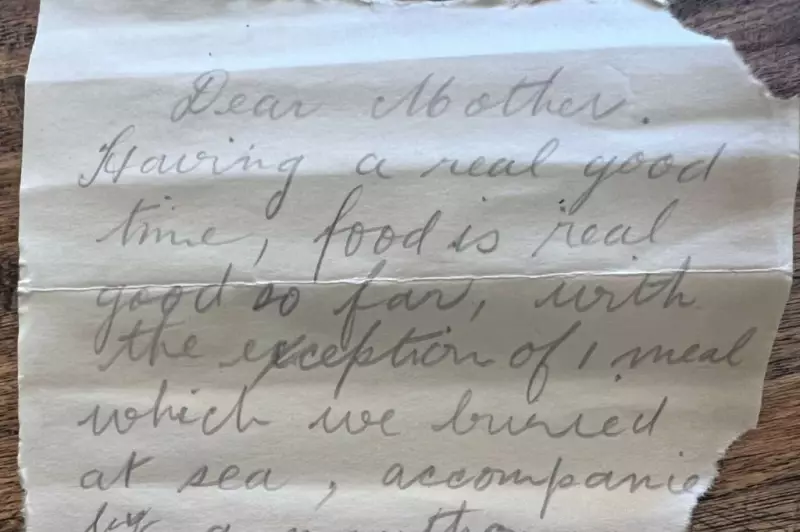
A remarkable piece of South Australia's military history has emerged from the shadows of time, as a soldier's heartfelt final message to his mother was discovered 109 years after it was written.
The Lost Letter Emerges
The poignant correspondence was penned by Private Charles James Moyle, a young South Australian who would soon face the horrors of Gallipoli. Written in 1915, the letter spent over a century hidden from view until its recent unexpected discovery.
"Just a line to let you know I am well and in the best of health," the young soldier assured his mother, demonstrating the characteristic bravery and concern for family that defined so many ANZAC soldiers.
A Glimpse Into History
What makes this discovery particularly significant is the timing of the letter's composition. Private Moyle wrote these words while stationed in Egypt, during the final preparations before the fateful Gallipoli campaign that would claim so many young Australian lives.
The letter provides an intimate window into the thoughts and emotions of a young man facing unimaginable circumstances, yet still thinking of home and family.
Preserving Our National Story
Historical experts have described the find as extraordinarily rare and valuable, offering fresh insights into the personal experiences of South Australian soldiers during World War I. The letter's survival against all odds adds to its historical significance.
This discovery serves as a powerful reminder of the individual stories behind the ANZAC legend—the real people, the sons and brothers, who left behind everything familiar to serve their country.
A Legacy Remembered
As we approach another ANZAC Day, the timing of this discovery feels particularly meaningful. The letter stands as a testament to the courage, sacrifice, and enduring family bonds that characterised Australia's World War I experience.
For historians and Australians alike, this newly uncovered message provides another precious thread in the rich tapestry of our national memory, ensuring that Private Moyle's story—and those of thousands like him—will continue to be told for generations to come.





